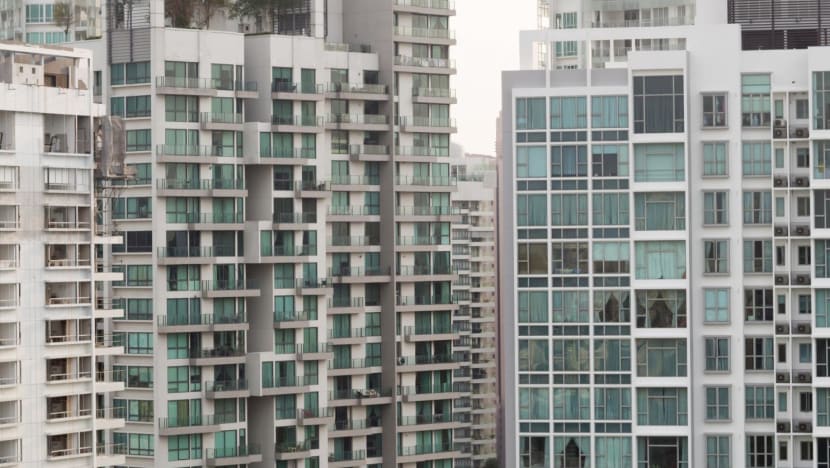Man fined S$1.4 million for running illegal short-term rental business at 19 properties
He earned revenue of S$1.47 million for providing short-term accommodation at the 19 properties over one year and eight months, until complaints were made to the condominiums' management.

File photo of private residential property in Singapore. (Photo: iStock)

This audio is generated by an AI tool.
SINGAPORE: A man ran a lucrative illegal business renting out short-term stays to locals and tourists at 19 properties, roping in four of his former maids to help run the operations.
Too Kim Lin, a 53-year-old Singaporean, was fined S$1,428,000 (US$1.06 million) by a district court for offences under the Planning Act.
If he cannot pay the fine, he will have to serve a jail term of 142 weeks, which is about two years and nine months.
According to a judgment made available on Wednesday (Nov 15), Too pleaded guilty to 11 charges for leasing residential properties for short-term accommodation to guests for a period of less than three consecutive months.
Another eight charges for the other eight properties were considered in sentencing.
The locations of the properties were redacted in the judgment, except for one: A 29th-floor unit at the V on Shenton condominium.
According to court documents, Too ran a large-scale short-term accommodation enterprise involving the use of other individuals and corporations.
He did so as he wanted to "realise true profits", and actively searched rental platforms such as PropertyGuru for more properties in the financial district to lease to grow his operations.
He used other people - including his older brother and his mother - to enter into tenancy agreements on his behalf. None of the tenancy agreements were in his own name.
When the property owners or agents asked questions, they would be told that the properties were being rented for legitimate purposes, such as for Too's girlfriend or elderly mother to stay in.
In truth, once Too obtained the tenancies, he would sublet the units out for profit.
HOW HE DID IT
He listed and advertised the units on platforms such as Airbnb, Booking.com and HomeAway and sublet them to tourists and guests in exchange for rent, using the rent to pay the monthly lease payments for the properties.
Too roped in four of his former maids to run errands for his illegal business, replenishing supplies and toiletries for the properties.
He also used at least seven different mobile numbers, using three of them to liaise with the various property agents to avoid arousing suspicion and to appear as separate individuals.
He also gave one of his accomplices a SIM card with another mobile line to communicate with the guests, such as to disseminate check-in instructions and answer queries.
Too took steps to evade detection, giving instructions for guests not to go directly to the properties. Instead, they were to contact him or his accomplice, before meeting somewhere near the properties and being taken up through a car park or side entrance to bypass security guards.
The managing agent of one of the condominiums Too used reported complaints and feedback regarding the high turnover of visitors, while another two landlords also received feedback from their condo management that the properties may have been used for short-term rentals.
Too received a total revenue of S$1.47 million for providing short-term accommodation at the 19 properties from Feb 1, 2018 to Oct 30, 2019.
He incurred expenditures of S$701,544 for making lease payments for the properties, meaning his profit was about S$768,000.
FINES AND DEFAULT JAIL TERMS SOUGHT
The prosecution sought a fine of between S$1.54 million and S$1.76 million, comprising two components: Disgorgement, to remove the illegal earnings made, and a punitive component meant to punish the offender.
Too's lawyers, Mr Nicholas Yong Yoong Han and Mr Andrew Wong Wei Kiat of Fortis Law, sought a fine of S$756,860 instead.
They estimated that Too had incurred expenses of about S$410 per property per month for utilities, Internet and cleaning fees.
However, the judge said there was no record of any of these purported expenses.
Both sides also argued on the jail term to be imposed if Too could not pay the fine - the defence said their client was unlikely to be able to pay it.
They asked for a "conversion rate" of one week's jail for every S$10,000 fine to be imposed, while the prosecution asked for one week's jail for every S$8,800 worth of fines.
The judge found that the defence's "conversion rate" was fair and would result in a total jail term that did not differ so significantly from the equivalent default jail term proposed by the prosecution.
Too intends to appeal against his sentence and his sentence has been stayed until after his appeal is heard.














